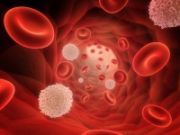Blood Test Can Measure Major Depressive Disorder and Indicate Treatment Options
A blood test can predict what treatment options are best for patients with major depressive disorder, according to a study published in Translational Psychiatry.

Blood tests can predict who will benefit from depression therapy, according to a study published in Translational Psychiatry.
Researchers from Northwestern Medicine designed a blood test to measure 9 RNA blood markers that objectively test for major depressive disorder (MDD). The researchers then enrolled 32 MDD patients aged 18 years or older between November 2007 and December 2010 into two randomized groups. Patients received 18 sessions of cognitive behavioral therapy (CBT) done either face-to-face or by telephone by a PhD-level psychologist. The researchers note in their study that these 2 methods produced equivalent outcomes for MDD. The same number of non-depressed control group patients matched for age, race, and sex were also recruited. MDD levels were measured at baseline and at 18 weeks, as well as with the blood test. Venous blood (2.5 ml) was collected for tests conducted at baseline and 18 weeks.
The researchers were not surprised to learn the MDD sample was significantly more depressed based on the Patient-Health Questionnaire-9 measurement at baseline. Depression scores dropped from 18.4 to 8.2 in the MDD group.
“This clearly indicates that you can have a blood-based laboratory test for depression, providing scientific diagnosis in the same way someone is diagnosed with high blood pressure or high cholesterol,” Eva Redei, PhD, co-lead author of the study, said in a press release. “This test brings mental health diagnosis into the 21st century and offers the first personalized medicine approach to people suffering from depression.”
The MDD blood test can predict who will benefit from CBT based on patients’ blood biomarkers who have recovered from depression as a result of the therapy. The patients who did not improve with the therapy did not show the same biomarker pattern in their blood.
“This study brings us much closer to having laboratory tests that can be used in diagnosis and treatment selection,” David Mohr, PhD, co-lead author, continued in the press release. “Currently, we know drug therapy is effective but not for everybody, and psychotherapy is effective but not for everybody. We know combined therapies are more effective than either alone but maybe by combining therapies are we using a scattershot approach. Having a blood test would allow us to better target treatment to individuals.”
The researchers believe that physicians using the blood test will be able to more easily decide was treatments will be more useful for individual patients. Currently, treatment is based on non-specific symptoms that may be underreported or not properly described by patients. The researchers’ next step is to test a larger population. Redei wants to see if the team can further differentiate between bipolar depression and MDD.